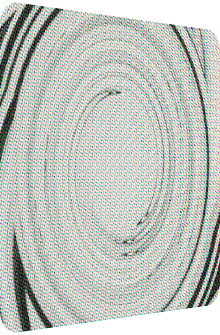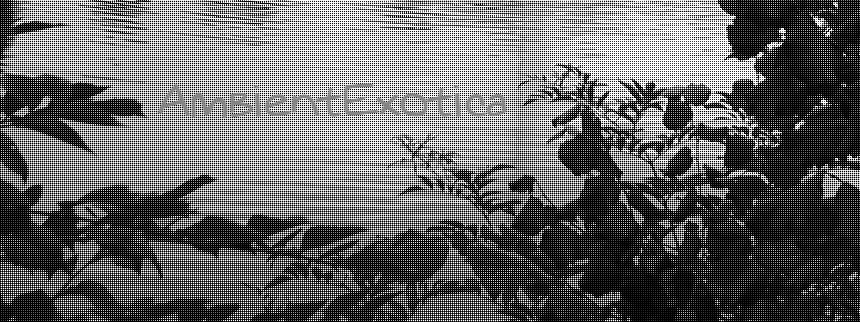
Koji Kihara
A Study
(Review of 4 tracks)
2013
[Note from July 5, 2013: The following review is about a work which, at the publishing date of June 26, 2013, featured four tracks. The artist adds additional tracks every so often and asks not to review or judge these experiments. Obviously, I did just that before the plea appeared. I am still of the opinion that it is valuable to speak about the designedly peculiar appearance of A Study. My review covers the first four tracks and discounts all forthcoming ones that appeared after the publishing date. This does at least somewhat respect the artist's wish.]
A Study is an especially, eh, special artifact by the Japanese Glitch artist Koji Kihara, self-released in May 2013 and available to download for free at his Bandcamp page. My confusion is genuine, for if there is a release of 2013 that justifies and ridicules every effort of categorization and good-natured explications, it is A Study. A curious remark, for studies are generally open to scrutiny if they are publicly available. In Koji Kihara's case, something is different. Comprising of four tracks – two of them Glitch-heavy, the other couple purely acoustic –, Kihara does not give the slightest explanation for the EP’s reason of existence. Only the album titles are a bit less opaque. Obviously, A Study collects Kihara’s electro-acoustic experiments, but what he wants to achieve or accomplish with them remains unknown. The material, meanwhile, closely resembles the chiptune barbecue sessions of his fellow Japanese luminaries Computersoup who became well-known in Occidental areas of the world due to their collaboration with Jan Jelinek on the hyper-mellow yet piercingly iridescent Improvisations And Edits, Tokyo, 9/26/2001. Especially the first tune off A Study might scare 90% of the even most dedicated Gitch listeners away, but by all means, stay tuned and you will discover a few gems and hypnotizing layers. Since the offerings are clearly marked as selections of studies and experiments, the listener must not expect deep or profound sound architectures rather than eclectic vignettes and psychoacoustic virtues. The reigning minimalism is at times horrifying, but has won me over. After Kihara’s debut Reprobate Space, I am glad to see him return in 2013 with new experiments. Let us see what can be distilled from the array of studies.
The opener is simply called Study:1, wisely camouflaging its fundament which consists of anything but a heavily bubbling caustic solution. An endless loop of hefty robotic bleeps akin to the futuristic viewpoints of the 60’s sees various filters applied to its skeletal embodiment of retrogressive futurity. Surreptitious yet curiously silky acid prongs accentuate the ever-bustling bedlam, and if there had not already existed the aforementioned band Computersoup, such a twitchy turmoil would have spawned the term sooner or later. Vesiculating jitters accompany the rotor-like shrapnel which, by the time of their appearance, either find a hopelessly hypnotized listener or an aghast apparition of the former. The fourth and final layer that constitutes the infaust anticipation of purified melodies is actually a sweeping one with a legato complexion; slowly rising 8-bit basslines resemble the concept of elevators comprising only of ancient bits and bytes. When Study:1 ends after six minutes, it becomes clear that this brute hints at a horrific experiment gone wrong. As designedly glitchy and adamantly antediluvian this soundscape is, it creates a maelstrom of flashing lightning bolts and puts the listener to the test: capitulation or exaltation? A definite answer is superfluous, a remark regarding Koji Kihara’s agenda more expedient: the worst is left behind and the best is yet to come, rarely has this been more applicable than in regard to this technocratic anacrusis.
Both Study:2 and Study:3 are actually the same track, but with different filters applied. Kihara fathoms out the most detailed and voluptuous connotation of the EP’s title, for this kind of study is exuberantly long. Each track lasts more than ten minutes, and their simultaneity is so enormously congruent that the listener best enjoys the two tracks in tandem and never even dares to tear them apart. But even if one does listen to the duo in sequence, the mollifying languidness is soothing, but not necessarily the point of these two studies. Be that as it may, Study:2; Experimental Work Platform:Long comprises of an endless string of wonderful acoustic guitar loops of six seconds. The pure warmth and aqueous conspicuousness of this otherwise demure and well-groomed loop is enchanting, it is close to bonfire hippiedom, but distant enough to inject globs of positive melancholia through the fissured recesses. Study:2 is no Drone track at all, the guitar itself is clearly recognizable. This study’s greatest appeal is also its biggest flaw: the six-second loop is repeated throughout the duration of almost eleven minutes, remains completely unchanged, with absolutely no filter ever applied. There is no twist. This is indeed a self-imposed study which does not allow any background noise or extrinsic factors to enter the scenery. The continuation of this formula is maintained in Study:3; Experimental Work Platform:Adjusted. The very same loop is repeated yet again, this time with an even greater watery aura. The guitar is not as crisp anymore since its afterglow is amplified and sustained, resulting in a positively diluted, dreamier aura. But again, the differences are minimal and totally negligible. If my math is correct, the listener has encountered the same loop of six seconds a whopping 215 times if he or she plays both studies in a row! Bedazzling.
The finale is another study in simplicity which is also mirrored in its title. Simply named Study:4, it propitiates the listener with the Glitch-focused characteristics of Study:1 by the means of aurally painting a similar but much silkier diorama of sparks and glints. Koji Kihara erects a wondrous chimescape supercharged with deliciously pristine bells and whistles. The different states of the bells and their frequency range is diverse and enthralling, ranging from deep and vibrant to the expected polar frostiness. While strictly loop-based, Study:4 time shifts, prolongs and delays the respective coruscating twinkles, allowing a trance-like state and varying transformations at the same, a concept all other studies lacked. There is even a cheeky occurrence of tone dialing, and as unnecessary and moss-grown it is today, the appearance is welcome and fits in the grand scheme of A Study with its purposefully antiquated segues. Another curious but eminently working addition is based on the scampering pattern of wooden splutters whose omnipresence is draped in the background and only prominently featured in the final minute when the gongs and bit-crushed vibes are gone. Like shuffling footsteps, they make the listener aware of the silence and blackness which finally reigns over Study:4 and ends this strange but devoted EP for good.
Right from the get-go, Koji Kihara makes clear that A Study is really just the thing its title so aptly describes. Lots of Ambient and Glitch artists would not even have cared (or dared?) to release a work in this form. Strangely enough in the given circumstance, A Study is a success texture-wise and provides quasi-zone out states in each and every of its vignettes, even the aggressively vesiculating Study:1 that is an ode to fans of those Glitch sloughs who would love to literally eat chips made of silicon in order to understand the innermost core of their tunes from within. I am not mocking these people, for I consider myself a follower of this movement, too. The real deal, so it seems, is the two-part track Experimental Work Platform with its two different flavors of the same guitar loop of six seconds. These versions can again be seen as somewhat of an affront, for the Japanese artist does not even alter a tiny bit and lets his arrangements start in medias res, with not one single instance of change, diversion or progression. Study:4 meanwhile offers the greatest variety of textures and movement, with glinting chimes, gongs, bells, whistles and vibes whose delicately streamlined physiognomy mediates between the Glitch genre and experimental Ambient music, whatever the latter helpless categorization might mean to each listener. A Study has only one big flaw: Kihara does neither reveal his endeavor nor the overarching goal of this release’s existence. The reason of this study remains in the dark. It is not clear on which audio-related fields the artist wants to improve or what the ultimate aesthetic value might be. In this regard, A Study towers above the competition in that it remains obscure and distant despite its carved out title, escaping from the prerogative of interpretation without further explanation. Glitch fans should give it a figurative listen.
Further listening:
Download A Study for free at Bandcamp.
Ambient Review 233: Koji Kihara – A Study (2013). Originally published on Jun. 26, 2013 at AmbientExotica.com.
